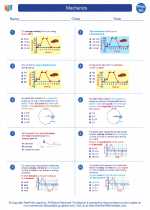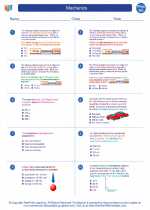Large Intestine
The large intestine, also known as the colon, is the final part of the digestive system. It is responsible for absorbing water and electrolytes from the remaining indigestible food matter, forming feces, and eliminating them from the body.
Anatomy of the Large Intestine
The large intestine is divided into several parts:
- Ascending colon: This is the first part of the colon, located on the right side of the abdomen.
- Transverse colon: This part runs horizontally across the abdomen.
- Descending colon: It is located on the left side of the abdomen.
- Sigmoid colon: This is the S-shaped part of the colon that connects to the rectum.
Functions of the Large Intestine
The primary functions of the large intestine include:
- Water absorption: The large intestine reabsorbs water from the indigestible food matter, which helps in the formation of solid feces.
- Feces formation: It stores and compacts fecal matter, and absorbs vitamins produced by gut bacteria.
- Elimination: The large intestine eliminates the feces from the body through the rectum and anus.
Common Disorders of the Large Intestine
Some common disorders related to the large intestine include:
- Constipation: Difficulty in passing stools due to the slow movement of feces through the colon, often due to insufficient water intake or lack of fiber in the diet.
- Diarrhea: Excessive and frequent passage of loose, watery stools, often caused by infections, food intolerances, or medications.
- Colon cancer: The development of cancerous growths in the colon, often starting as polyps.
Study Guide
To study the large intestine effectively, consider the following key points:
- Understand the anatomy of the large intestine, including its parts and their respective functions.
- Learn about the processes of water absorption, feces formation, and elimination in the large intestine.
- Explore common disorders and conditions associated with the large intestine, and their causes and treatments.
- Review the role of dietary habits, such as fiber intake and hydration, in maintaining a healthy large intestine.
- Consider the importance of regular screenings and colonoscopies for early detection and prevention of colon cancer.
By mastering these concepts, you can gain a comprehensive understanding of the large intestine and its significance in the digestive system.
.◂Physics Worksheets and Study Guides High School. Mechanics
The resources above cover the following skills:
Core Ideas for Knowing Science
Physical Science
Changing the movement of an object requires a net force to be acting on it.



